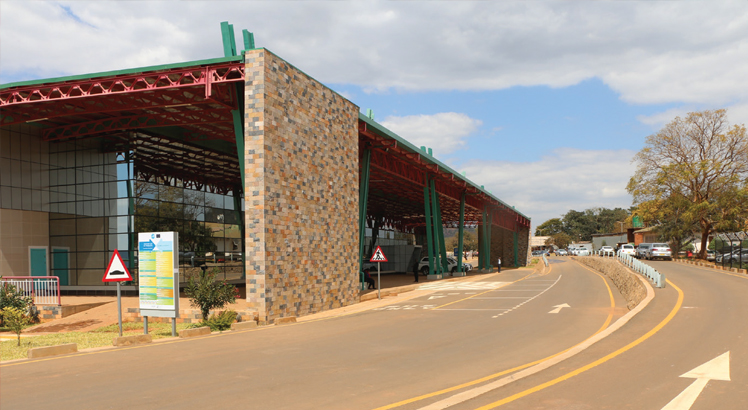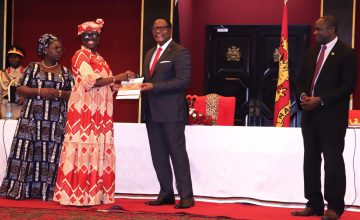Plan seeks to increase AgroGDP share to 30%
The Malawi 2063 (MW2063) first 10-year implementation plan (MIP-1) is targeting to grow the share of agriculture sector to gross domestic product (GDP) from 22.8 percent in 2020 to 30 percent by 2030.
The plan, launched on Monday in Lilongwe by President Lazarus Chakwera, has an ambitious target to grow the average value addition for crops, livestock, forestry and fisheries from about K403 billion in 2019 to K680 billion by 2030.

Agriculture productivity and commercialisation is the first pillar of the MW2063, the country’s long-term development plan which was launched on January 19 2021 and replaced Vision 2020.
According to MIP-1, the agriculture sector is already enjoying huge financial support from both government and development partners.
The plan also acknowledges that the sector enjoys spillover benefits from the implementation of strategies and programmes in cross-cutting areas such as gender, climate change, land and environmental management.
Reads the plan in part: “However, production and productivity of the sector has remained below its potential and is insufficient to match the increasing demand from domestic and export markets.
“Despite the high dependence of the economy on agriculture, commercialisation of the sector is limited.
“Overall, the sector is characterised by low productivity, low levels of improved farm input use, limited private investment, and low mechanisation levels.”
Providing comparative statistics, the plan reveals that the average added value per agricultural worker in Malawi has only amounted to $209 (about K172 000), far below the sub-Saharan average of $680 (about K560 000).
Similarly in 2019, Malawi’s score in the ‘Enabling the Business of Agriculture Index’, which measures how regulations affect the livelihood of domestic farmers, was low at 41.51 percent.
The index includes eight parameters, namely seed, fertiliser, machinery, finance, markets, transport, water and information and communications technology (ICT).
However, it is acknowledged in the report that Malawi’s ranking is mostly weighed down by poor scores on access to seed, fertiliser and ICT services.
The MIP-1 provides “game changer” interventions which government intends to use to transform the agriculture sector.
Among others, the game changers include land titling to offer land tenure security for long-term investments, strengthening the agricultural extension services, sustainable access to high-quality affordable inputs and modern production technologies, introduction and sustainability of structured markets, investment in large-scale infrastructure and scaling up of vibrant cooperatives.
In an interview on Tuesday, economist Milward Tobias, who is executive director of Centre for Research and Consultancy, said there was need for authorities to ensure strong commitment while making resources available to finance all projects that have value for money.
“My expectation is that the MIP-1 will be a national theory of change and that the NPC [National Planning Commission] will be given the rightful space to guide decisions on the development path,” he said.
During a panel discussion on Monday as part of the National Development Conference organised by NPC, one of the panellists, Ngabaghila Chatata, who is managing director for Thanthwe Holdings Limited, said that over the years, Malawi’s agriculture sector has been struggling to tick as a result of poor implementation of policies within the sector and misallocation of resources.
Agriculture experts have for a long time criticised government for allocating more resources within the agriculture sector towards consumption at the expense of long-term investments, citing the Affordable Inputs Programme (AIP) budget.
In the 2021/22 National Budget, AIP has been allocated K142 billion, a figure which is half the size of the total budget allocated to the entire agriculture sector at K284 billion.
In his address during the launch of the plan, Chakwera called for digitisation of farming to make it efficient and productive.
He also said there is need to re-educate the youth to understand that farming is one of the surest paths to the wealth creation.





